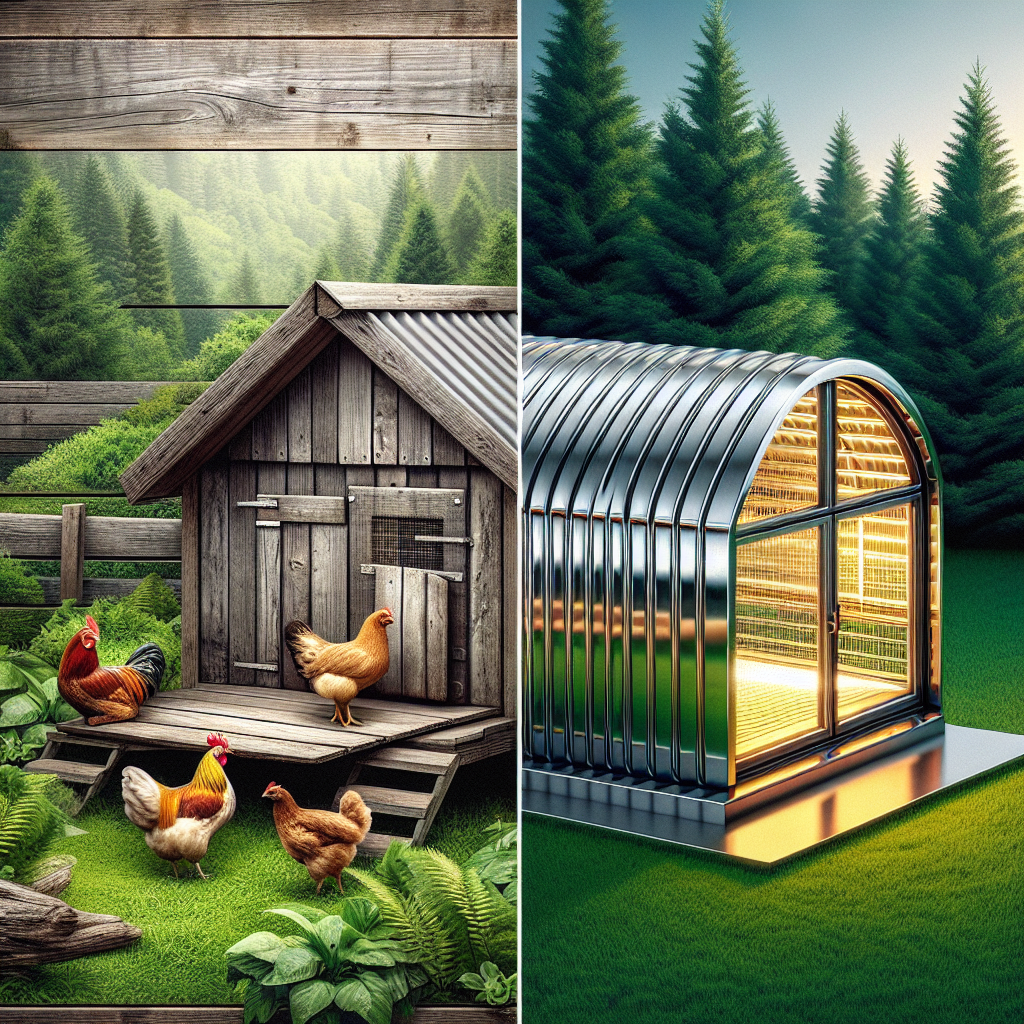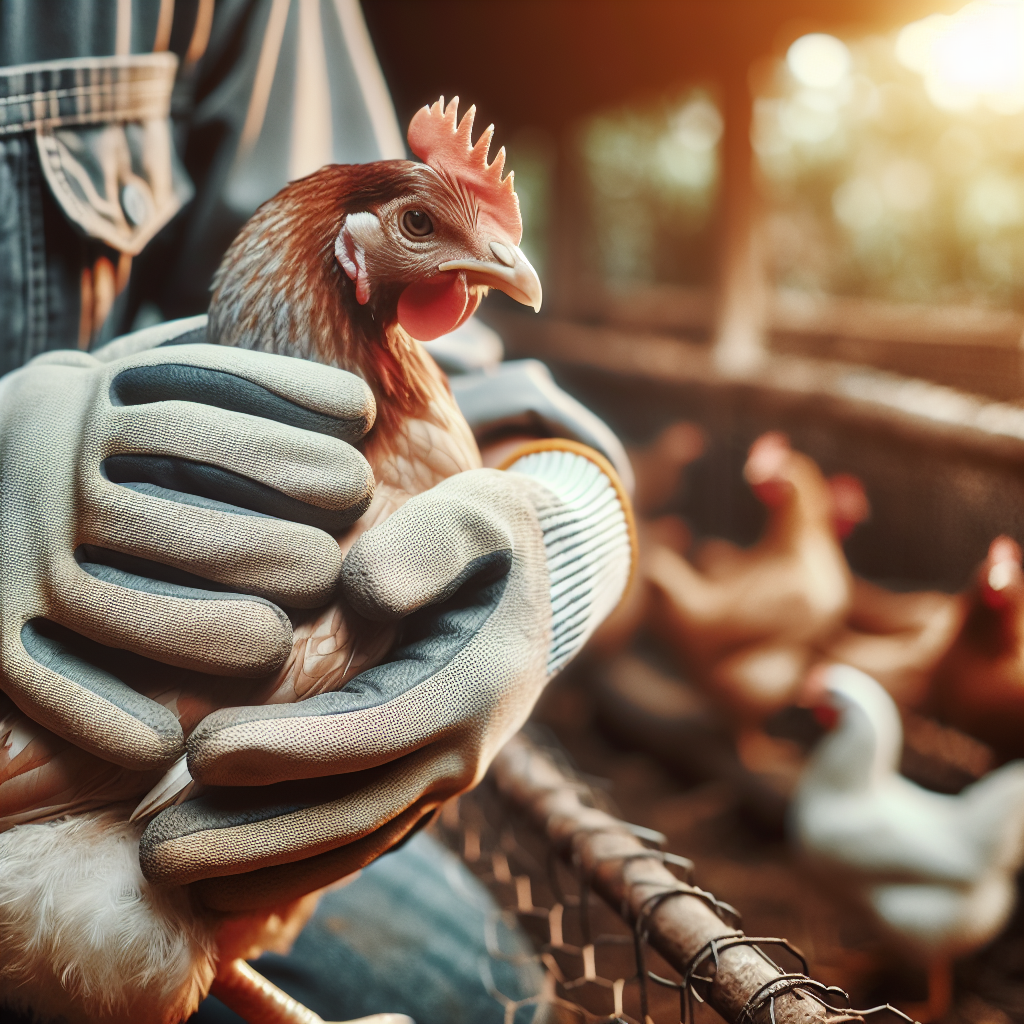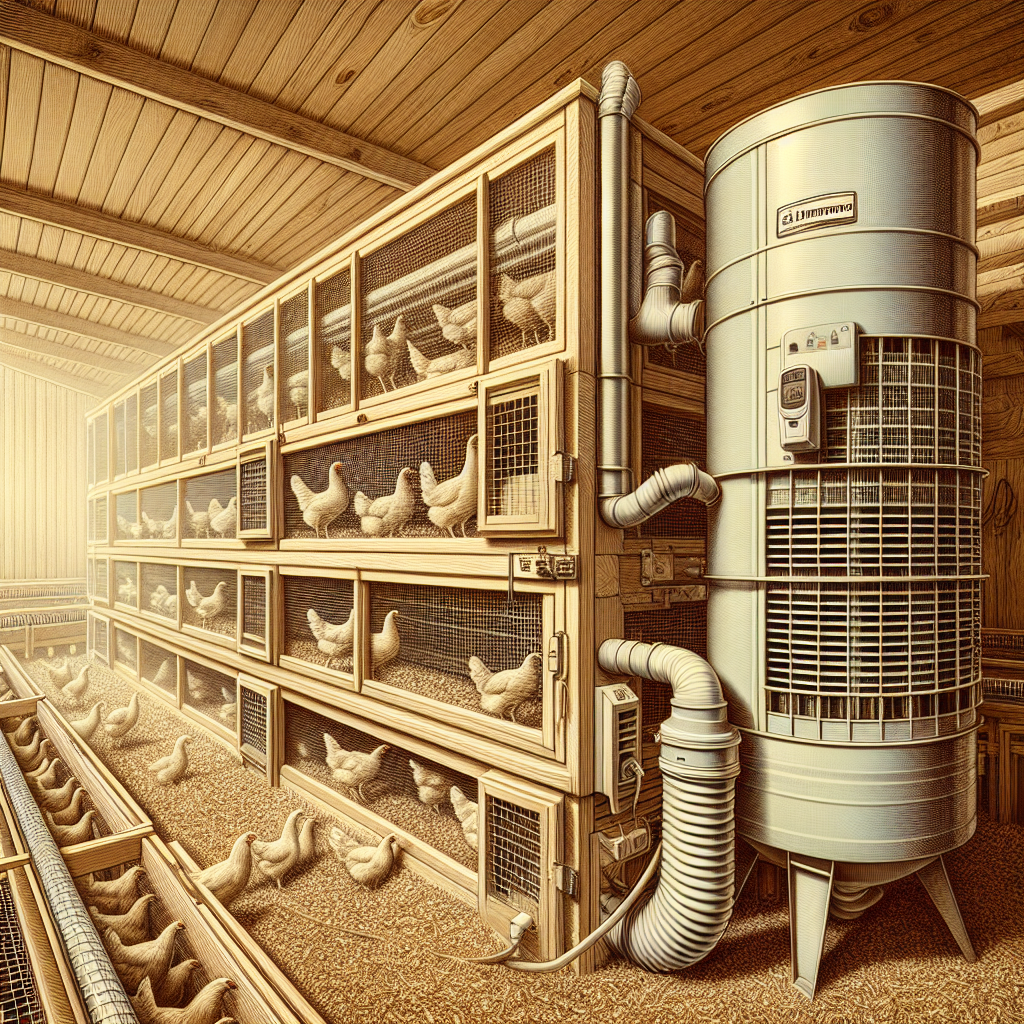Have you been considering getting a chicken coop but can’t decide between a wooden or metal one? Well, fret not! In this article, we will explore the key differences in maintenance requirements between these two types of coops. By the end, you will have a clearer understanding of which option best suits your needs, making your chicken-keeping experience a breeze. So, let’s get started!
Durability
When it comes to choosing between wooden and metal coops, one important factor to consider is durability. A durable coop ensures that your chickens are protected from external threats and that your investment lasts for a long time. Let’s compare the durability of wooden and metal coops.
Wooden Coops
Wooden coops are known for their natural charm and rustic aesthetics. However, the durability of wooden coops can vary depending on the type of wood used and the quality of construction. High-quality wooden coops made from rot-resistant woods like cedar or redwood can withstand the test of time. These woods are naturally resistant to decay and insect infestation, ensuring that your coop remains intact for years.
However, it is important to note that even with rot-resistant wood, regular maintenance is necessary to ensure the longevity of wooden coops. This includes reapplying sealant or paint every year to protect against weathering and rot.
Metal Coops
Metal coops, on the other hand, are renowned for their durability and strength. Made from materials like galvanized steel or aluminum, these coops are built to withstand harsh weather conditions and provide robust protection for your chickens. Metal coops are resistant to rot, decay, and pest infestation, making them a low-maintenance option for chicken owners.
Moreover, metal coops are less prone to damage from external forces like falling branches or accidental collisions. This makes metal coops an ideal choice for areas prone to extreme weather conditions or where predators are a concern.
Weather Resistance
The ability of a chicken coop to withstand different weather conditions is paramount in ensuring the safety and comfort of your feathered friends. Let’s explore how wooden and metal coops differ in terms of weather resistance.
Wooden Coops
Wooden coops, although charming and aesthetically pleasing, may require extra attention when it comes to weather resistance. While rot-resistant woods like cedar and redwood can provide some natural weather resistance, wooden coops generally require regular maintenance to protect against moisture and extreme temperatures.
To enhance the weather resistance of wooden coops, it is recommended to apply a weatherproof sealant every year. This helps prevent water penetration, rot, and warping. Additionally, positioning the coop in a sheltered area and providing proper ventilation can also contribute to its weather resistance.
Metal Coops
Metal coops are renowned for their excellent weather resistance properties. Made from sturdy materials like galvanized steel or aluminum, these coops are designed to withstand the elements. Metal coops effectively resist water damage and are less prone to warping, rot, or damage due to extreme temperatures.
Moreover, metal coops provide an additional layer of protection against rain, snow, and wind. This, coupled with their durability, makes metal coops a reliable option for chicken owners in areas with harsh weather conditions.
Rot and Decay
Avoiding rot and decay is crucial for maintaining the structural integrity and longevity of your chicken coop. Let’s compare how wooden and metal coops fare in terms of rot and decay resistance.
Wooden Coops
Wooden coops, especially those made from rot-resistant woods like cedar or redwood, can have good natural resistance to rot and decay. However, regular maintenance is necessary to ensure the longevity of wooden coops. Applying a sealant or paint every year helps create a protective barrier against moisture, preventing the wood from rotting or decaying over time.
In addition to regular maintenance, proper ventilation and positioning the coop away from direct contact with the ground can further minimize the risk of rot and decay in wooden coops.
Metal Coops
Metal coops, being made from materials like galvanized steel or aluminum, are inherently resistant to rot and decay. Unlike wood, metal does not absorb moisture, making it less susceptible to fungal growth or deterioration. Metal coops provide a reliable solution for those seeking a low-maintenance option without the concerns of rot or decay.
Pest Infestation
Protecting your chickens from pests is essential for their health and well-being. Let’s explore how wooden and metal coops differ in terms of pest infestation.
Wooden Coops
Wooden coops can be vulnerable to pest infestations, especially if not properly maintained. The crevices and cracks in wood can provide hiding spots for insects and rodents, making wooden coops an attractive target for pests. Regular inspections and sealing any gaps in the coop can help minimize the risk of infestation.
To further mitigate the risk of pest infestation, some chicken owners utilize natural repellants, such as herbs or essential oils, around the coop. However, it is important to note that wooden coops may require more attention to pest control compared to metal coops.
Metal Coops
Metal coops, with their solid construction and sealed joints, are less prone to pest infestation. The smooth surfaces and lack of crevices make it difficult for pests to find entry points into the coop. This makes metal coops a more pest-resistant option, reducing the need for extensive preventive measures.
While metal coops provide a good defense against pests, it is still advisable to regularly clean and inspect the coop to ensure no pests find their way inside.
Maintenance Frequency
The frequency of maintenance required for a coop is an important consideration for chicken owners with busy schedules or limited time. Let’s compare the maintenance frequency needed for wooden and metal coops.
Wooden Coops
Wooden coops require regular maintenance to ensure their longevity. The specific maintenance tasks for wooden coops include:
- Sealing or painting: Applying a weatherproof sealant or paint every year helps protect the wood from moisture, rot, and decay.
- Checking for cracks and gaps: Regularly inspecting the coop for any cracks or gaps and sealing them prevents pests from finding entry points.
- Cleaning and sanitizing: Regularly cleaning the coop, replacing bedding, and sanitizing the interior keeps the coop hygienic and prevents disease.
- Reinforcing weak areas: Over time, wooden coops may develop weak spots that require reinforcement to maintain their structural integrity.
Depending on the climate, the age of the coop, and the quality of initial construction, wooden coops may require more frequent maintenance compared to metal coops.
Metal Coops
Metal coops are relatively low-maintenance compared to their wooden counterparts. The maintenance tasks for metal coops include:
- Cleaning: Regularly cleaning the coop, removing waste, and sanitizing the interior helps maintain a clean and healthy environment for the chickens.
- Inspecting for damage: Periodically inspecting the coop for any dents, loose joints, or other signs of damage and promptly addressing them ensures the robustness of the metal coop.
- Lubricating hinges and locks: If applicable, lubricating hinges and locks helps maintain smooth functionality.
Overall, metal coops require less frequent maintenance, making them a convenient choice for chicken owners with busy schedules.
Painting and Finishing
The aesthetics of your chicken coop can be enhanced with the right painting and finishing techniques. Let’s compare how wooden and metal coops differ in terms of painting and finishing requirements.
Wooden Coops
Wooden coops provide an opportunity for customization through painting and finishing. Applying paint, stain, or varnish not only adds charm to the coop but also helps protect the wood from weathering and moisture. However, it is crucial to choose non-toxic paints or stains, as harmful chemicals can be harmful to chickens.
To ensure a long-lasting and visually appealing result, it is recommended to clean and sand the wood before applying any paint or finish. Additionally, reapplying paint or finish annually can help maintain the appearance and protection of the wooden coop.
Metal Coops
Metal coops, usually made from galvanized steel or aluminum, come with a durable finish that protects against rust and corrosion. However, if desired, metal coops can also be painted to achieve a different look or blend in with the surroundings. Before painting, it is essential to clean the metal surface thoroughly and apply primer to ensure proper adhesion.
While painting metal coops is optional, it can provide an opportunity for customization and personalization. However, keep in mind that repainting may be required more frequently than with a wooden coop to maintain the desired appearance.
Rust and Corrosion
Preventing rust and corrosion is crucial for the longevity and structural integrity of your coop. Let’s compare how wooden and metal coops differ in terms of rust and corrosion resistance.
Wooden Coops
Wooden coops, being made primarily of wood, are naturally resistant to rust and corrosion. However, if metal hardware or fittings are used in the construction of the coop, they may be susceptible to rust. Regular inspections and replacement of any rusted metal parts can help maintain the overall integrity of the wooden coop.
Additionally, following the recommended maintenance tasks like sealing the wood and preventing water accumulation around the coop can also contribute to minimizing the risk of rust and corrosion.
Metal Coops
Metal coops, designed to withstand the elements, are highly resistant to rust and corrosion. Galvanized steel and aluminum, commonly used for metal coops, have inherent corrosion resistance properties. The galvanized coating on steel provides an additional layer of protection against rust, while aluminum is naturally rust-resistant.
Unlike wooden coops, metal coops do not require extensive measures to prevent rust and corrosion. However, regular cleaning and inspections should still be conducted to ensure the coop remains in optimal condition.
Cracking and Denting
Another factor to consider when choosing between wooden and metal coops is their resistance to cracking and denting. Let’s explore how wooden and metal coops differ in this aspect.
Wooden Coops
Wooden coops can be susceptible to cracking, particularly if exposed to extreme temperature fluctuations or inadequate protection from moisture. However, choosing high-quality, thick wood and proper construction techniques can minimize the risk of cracking. Regular maintenance, including sealing the wood and inspecting for cracks, is essential to prevent further damage and maintain the structural integrity of wooden coops.
Metal Coops
Metal coops, being made from sturdy materials like galvanized steel or aluminum, are highly resistant to cracking and denting. The inherent strength of metal provides robust protection against external forces and ensures that the coop remains intact. This makes metal coops an excellent option for areas prone to wild weather or potential impacts.
Cleaning and Sanitation
Maintaining a clean and hygienic coop is crucial for the health and well-being of your chickens. Let’s compare how wooden and metal coops differ in terms of cleaning and sanitation requirements.
Wooden Coops
Wooden coops require regular cleaning and sanitation to prevent the buildup of waste and potential disease transmission. The specific cleaning tasks for wooden coops include:
- Removing waste: Regularly removing waste and replacing the bedding helps maintain cleanliness and prevent unpleasant odors.
- Scrubbing the surfaces: Periodically scrubbing the interior surfaces of the coop with a mild disinfectant solution helps eliminate any bacteria or parasites.
- Cleaning nesting boxes: Regularly cleaning and replacing the bedding in nesting boxes prevents the accumulation of dirt and reduces the risk of egg contamination.
- Addressing mold or mildew: If any mold or mildew is present, it is important to remove and clean affected areas to safeguard the health of the chickens.
Metal Coops
Metal coops, with their smooth surfaces and lack of absorbent materials, are generally easier to clean and sanitize compared to wooden coops. The cleaning tasks for metal coops include:
- Removing waste: Regularly removing waste and rinsing the interior surfaces with water helps maintain cleanliness.
- Disinfecting: Periodically disinfecting the coop using a mild solution helps eliminate any bacteria or parasites.
- Cleaning nesting boxes: Similar to wooden coops, regularly cleaning and replacing the bedding in nesting boxes is essential for maintaining hygiene.
- Addressing moisture buildup: It is crucial to regularly check and address any signs of moisture buildup, as it can lead to bacterial growth in metal coops as well.
Both wooden and metal coops require regular cleaning and sanitation to keep the coop environment healthy for your chickens.
Repairs and Replacement
Over time, even the most well-maintained coops may require repairs or replacement of certain components. Let’s compare how wooden and metal coops differ in terms of repairs and replacement needs.
Wooden Coops
Wooden coops, despite their durability, may require occasional repairs due to natural wear and tear. The specific repairs for wooden coops include:
- Replacing rotted or damaged wood: Over time, some wooden components may deteriorate and require replacement to maintain the integrity of the coop.
- Fixing loose or broken parts: Ensuring that all parts of the wooden coop are intact and properly attached is crucial for its stability and safety.
- Repairing cracks or gaps: Addressing any cracks or gaps in the coop helps prevent pests from entering and ensures the coop remains a secure space for your chickens.
- Reapplying sealant or paint: Regularly reapplying sealant or paint is necessary to protect the wood from weathering and extend the lifespan of the coop.
With proper maintenance, wooden coops can last for many years before major repairs or replacement of components are required.
Metal Coops
Metal coops, known for their durability, generally require fewer repairs compared to wooden coops. However, if damage does occur, the specific repairs for metal coops include:
- Addressing dents or scratches: If the metal surfaces of the coop become dented or scratched, they can be repaired or replaced to ensure the overall integrity of the coop.
- Fixing loose or broken joints: Ensuring that all joints are firmly connected and properly fastened is important for the stability and safety of the metal coop.
- Replacing corroded or rusted parts: While metal coops are highly resistant to rust and corrosion, it is still possible for certain metal components or hardware to rust over time. Replacing these parts promptly maintains the effectiveness and lifespan of the metal coop.
Overall, metal coops may require fewer repairs or replacement of components compared to wooden coops, making them a low-maintenance option.
In conclusion, maintenance requirements differ for wooden and metal coops. Wooden coops offer natural charm but require regular maintenance to ensure durability, weather resistance, and prevent rot, decay, and pest infestation. On the other hand, metal coops are highly durable, weather-resistant, and less prone to rot and pest infestation. They also require less maintenance overall. Consider your location, weather conditions, and personal preferences to make an informed decision on whether a wooden or metal coop is the right choice for you and your flock.




